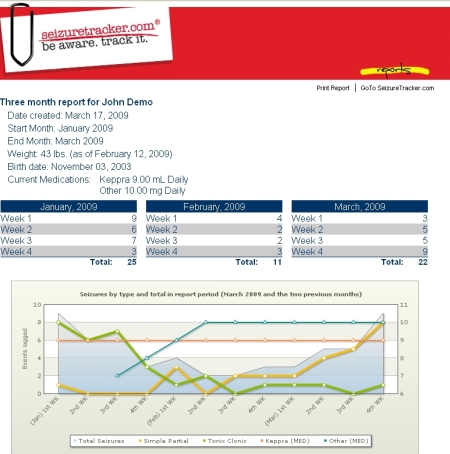April 29th, 2010 by DrWes in Better Health Network, Health Tips, Opinion, Research
Tags: 3D Technology, 3D Television, 3D TV, Altered Vision, Children, Confusion, Convulsions, Damaged Eyesight, Decreased Postural Stability, Disorientation, Dizziness, Eye Strain, Eye Twitching, Family Medicine, Fatigue, General Medicine, Headaches, Internal Medicine, Involuntary Movement, Lightheadedness, Motion Sickness, Muscle Twitching, Nausea, Photosensitive Epilepsy, Primary Care, Samsung Australia, Seizures, Stroke, Teenagers, Vitual Reality
No Comments »

I can’t read for any length of time in a moving vehicle — it makes me nauseous. This is because in order for the body to determine where it is at all times, the brain combines visual information, touch information, inner ear information, and internal expectations to judge its position in space.
Under most circumstances, the senses and expectations agree. When they disagree, there is conflict, and motion sickness can occur. In my case with reading in a car, my eyes that are fixed on the written page tell my brain that I am still. However, as the car goes over bumps and accelerates or decelerates, my inner ear disagrees resulting in my brain activating the nausea center and causing motion sickness.
Well, the same thing might happen with 3D TV. Read more »
*This blog post was originally published at Dr. Wes*
April 29th, 2010 by Felasfa Wodajo, M.D. in Better Health Network, Health Policy, Opinion, Research
Tags: EHR, Electronic Health Record, Family Medicine, General Medicine, Health IT, Health URL, HHS, Internal Medicine, John Halamka, Machine-To-Machine Communication of Medical Information, Medical Technology, Nationwide Health Information Network, NHIN Direct, Office of the National Coordinator, ONC, Personal Health Record, PHR, Primary Care, U.S. Department of Health and Human Services
No Comments »

 Check out John Halamka’s post on some of the excellent work one of the workgroups convened by the feds is doing. Here’s the complete quote:
Check out John Halamka’s post on some of the excellent work one of the workgroups convened by the feds is doing. Here’s the complete quote:
Imagine if every EHR could send data to every other EHR using a simple addressing mechanism like email, a consistent REST implementation or a well described SOAP WSDL. Interoperability would follow rapidly because novel packages of data will be sent to support real business needs without any barriers of how to get the data from endpoint to endpoint.
The “addressing” part of the NHIN (Nationwide Health Information Network) Direct specifications is almost complete. The “implementation” workgroup is part of the fast moving NHIN Direct project which is developing lightweight standards for machine-to-machine communication of medical information. Read more »
*This blog post was originally published at a few thoughts from a tumor surgeon*
April 29th, 2010 by Berci in Better Health Network, Health Tips, Opinion, Research
Tags: Anti-Epileptic Medications, e-Tool, Epilepsy, Epileptology, Internal Medicine, Online Health Management, Online Seizure Log, Seizures, SeizureTracker.com, Track Epilepsy Online, Tracking Health Parameters
No Comments »

 I’ve written about several sites that let users track parameters related to their health management.
I’ve written about several sites that let users track parameters related to their health management.
Here’s another example, SeizureTracker.com, that tracks seizure activity, appointments, and medication schedules through a simple calendar interface. You can download printable seizure logs or receive customized reports which include graphs comparing seizure activity and medication dosages. Read more »
*This blog post was originally published at ScienceRoll*
April 29th, 2010 by Steve Novella, M.D. in Better Health Network, Health Policy, Opinion, Research
Tags: Andrew Wakefield, Anti-Vaccine, Bad Science, Big Pharma, Big Pharma Conspiracy Theorists, Conspiracy-Mongering, Cymbalta, Drug Company, Evidence-Based, FDA, Fibromyalgia, Food and Drug Administration, Harriet Hall, Historical Revisionism, Internal Medicine, Inventing Diseases, Legitimate Diseases, Lyrica, Martha Rosenberg, MMR Vaccine, Osteopenia, Pharmaceutical Executive, Pharmaceutical Industry, Pharmacology, Popular Diagnosis, Savella, Science Based Medicine, Scientific Validity, Thimerosal, Treatment Resistant Conditions
1 Comment »

To be blunt up front –- SBM is not apologetic about the pharmaceutical industry. We get zero funding from any company, and have no ties of any kind to “big pharma.” In today’s world I have to spend time making that clear, because despite the reality critics are free to assume and falsely claim that our message is coming straight from the bowels of hell (a.k.a. the pharmaceutical industry).
We promote science-based medicine and criticize pharmaceutical companies along with everyone else when they place other concerns ahead of scientific validity, or promote bad science, for whatever reason.
It has become fashionable, however, to not only criticize the pharmaceutical industry but to demonize them –- and the term “big pharma” has come to represent this demonization. Cynicism is a cheap imitation of skepticism –- it is the assumption of the worst, without careful thought or any hint of fairness. Read more »
*This blog post was originally published at Science-Based Medicine*
April 28th, 2010 by KevinMD in Better Health Network, Health Policy, Health Tips, Opinion, Research
Tags: Doctor-Patient Communication, Doctors Who Stand, Exam Room Etiquette, Family Medicine, General Medicine, Office Visit, Patient Satisfaction, Patient Understanding, Patient-Doctor Relationship, Physicians Who Sit, Primary Care, Seated Doctors, Sitting Down
No Comments »

Patient satisfaction, as I wrote about previously, is being increasingly focused upon.
Doctors are often pressed for time, and appear rushed — which can potentially lead to unhappy patients.
I saw this small study showing that the simple act of sitting down while talking to patients can have a profound effect. Many doctors I know already do this, but now there’s some data to support sitting. Read more »
*This blog post was originally published at KevinMD.com*




 Check out John Halamka’s
Check out John Halamka’s 










